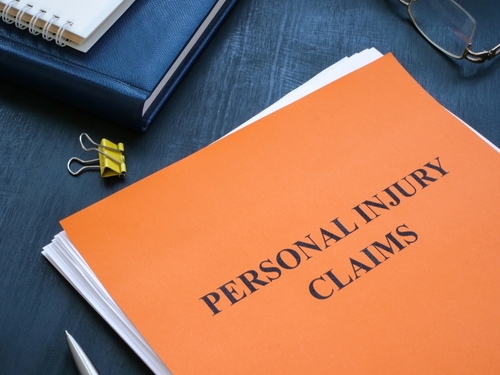In Virginia, the statute of limitations sets the time limits within which a party must initiate a personal injury lawsuit or legal action. These time limits are designed to ensure that claims are brought promptly, facilitating fair trials by preserving evidence and ensuring that parties do not have to face uncertain liabilities indefinitely. However, the law recognizes that some individuals may be unable to act within these prescribed time limits due to incapacity or incompetence. In such situations, Virginia law provides for special rules that toll or pause the statute of limitations, offering additional time for individuals who are incapacitated or incompetent to pursue their legal claims.
If you’ve been injured due to someone else’s negligence and are wondering about the value of your case, don’t hesitate to reach out. At Shapiro, Washburn & Sharp, we can help you assess your claim and guide you through the legal process to ensure you receive the compensation you deserve. Call us today at 833-997-1774 for a free consultation.
What Is the Statute of Limitations and Legal Disability in Virginia?
In Virginia, like most states, the statute of limitations ensures that lawsuits are filed within a reasonable time after the cause of action arises. Different types of claims have different time limits, ranging from two years for personal injury claims to five years for property damage claims. However, these time limits are not always strictly enforced when the person seeking to bring the lawsuit is incapacitated or legally incompetent.
Virginia Code Section 8.01-229 specifically addresses situations involving legal disabilities, which include minors, individuals with mental illness or incapacity, and individuals who are otherwise unable to manage their legal affairs due to mental or physical conditions. The law provides a mechanism known as “tolling” to delay the statute of limitations under these circumstances.
Is There a Tolling on the Statute of Limitations for Minors?
One of the most common instances where the statute of limitations is tolled in Virginia involves minors. According to Virginia law, when a person is under the age of 18, the statute of limitations does not begin to run until the minor reaches the age of majority, which is 18. This rule ensures that minors who are too young to understand their legal rights and responsibilities are not penalized by an inability to bring a claim before reaching adulthood.
For example, if a minor is involved in a personal injury accident at the age of 10, the clock on the statute of limitations for filing a lawsuit would not begin until the child turns 18. This effectively gives the child reasonable time to bring the case once they can legally act on their own behalf.
However, in some cases, a parent or guardian can file a lawsuit on behalf of the minor while they are still underage. This allows the injured minor to receive compensation even before they turn 18, but the statute of limitations will still be paused until the minor reaches adulthood. After reaching the age of majority, the minor has a limited period to pursue the claim if the lawsuit was not filed on their behalf during their childhood.
Is There a Tolling the Statute of Limitations for Incompetence or Incapacity?
When an adult individual is incapacitated or incompetent, the statute of limitations may also be tolled. Virginia law recognizes that people who are legally incompetent due to mental illness, disability, or other factors may be unable to understand the nature of their legal rights or pursue a claim effectively. In such cases, the statute of limitations does not begin to run until the individual regains competency or the legal disability is removed.
In Virginia, an individual is typically considered incompetent when a court has declared them so based on mental incapacity. This might involve individuals suffering from conditions such as dementia, severe mental illness, or a catastrophic injury that affects their cognitive functions. If a person is determined to be incompetent, the statute of limitations for bringing a lawsuit is paused until the individual is deemed capable of managing their legal affairs once again.
The law provides that the period during which a person is legally incompetent does not count toward the statute of limitations, effectively giving them extra time to bring a claim once they can do so. For instance, if an individual is diagnosed with a mental illness and placed under guardianship, the statute of limitations for filing a personal injury claim will be paused until the guardianship is terminated or the individual regains their mental capacity. However, there are some limits to this tolling. The statute of limitations will typically only be tolled for up to five years from when the cause of action arose, after which it may be too late to bring a claim, even if the individual remains incapacitated.
What Should I Do If I Think I Have a Personal Injury Case?
Lost or diminished wages are a vital part of any personal injury claim. By working with an experienced personal injury lawyer and gathering strong evidence, you can ensure you receive fair compensation for both your past and future losses caused by the injury.
Call 833-997-1774 to schedule a free consultation with one of our dedicated personal injury lawyers. At Shapiro, Washburn & Sharp, we have obtained more than $100 million in settlements and awards for our clients and will work diligently to get you the financial compensation you deserve.
